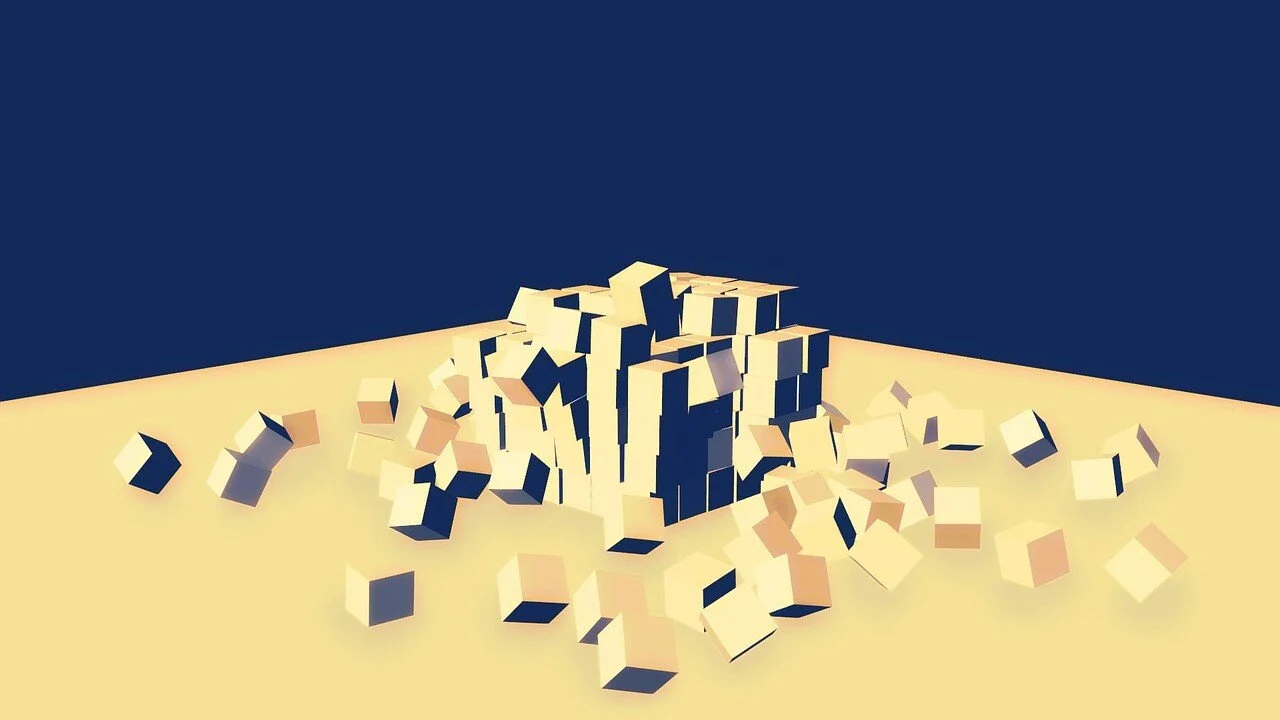Waking up on the wrong side of disruption
If you aren't the one disrupting things around you, you are possibly on the other side. The side that's getting disrupted. It doesn't matter whether you are an individual or a team or a company. Or, how experienced you are. Or, how big or small your company is. Or, which country you live in or in which industry you work.
“We are all in the midst of not one but several waves of disruption.”
There are many forces at play. When these forces intersect, they multiply. When they multiply, they change everything exponentially. And after that there’s no stopping.
4 big trends
Let me tell you about my industry: healthcare. There are 4 big trends that are stretching the industry in its seams.
Consolidation. The industry is getting bigger, faster. Private equity is adding fuel to the fire. The number of players are rapidly shrinking.
Technology. Artificial intelligence is giving super powers to everyday users. DNA testing is competing with doctors. Then there's robotics, synthetic biology, sensors, 3D printing and so on.
Big brothers. Big health systems and insurance companies are getting more powerful. They are creating competitive forces that are affecting all of healthcare.
Patients. Patients have become consumers. Doctors have become providers of care. Consumer behavior is changing healthcare from "fix my sickness" to "make me sexier" to "help me live forever".
You'll find similar trends in every industry. In fact, these trends are compelling industries to converge and create newer industries. For example, sensors, microprocessors, robotics, cloud computing, automotive converged to create the self-driving industry. In its turn, self-driving is disrupting 33 industries.
Wrong side of disruption isn't pretty
The wrong side of disruption doesn't look pretty to me.
As we make changes in our company, rejigging functions with advanced technology, I already feel troubled.
“People can’t suddenly scale like systems. People can’t suddenly learn new skills. People have rigid emotions that are hard to unburden overnight.”
We have to grow, train, change, retool all at the same time.
It's just not with me or my company. I already know that my present and future clients (doctors and their organizations) will also get disrupted. So even if we make changes as a company, we are dependent on our clients to make changes fast. We are dependent on our vendors to move faster.
Your perception of these changes as a threat or opportunity will depend on ONE thing. No, not technology or other externalities. It's your own mindset.
The disruption mindset
Some of us can connect these emerging dots. Most of us can't. That's a problem going forward.
We aren't talking about disruption across a handful of functions. We are talking about massive dismantling and retooling of hundreds of thousands of job functions. Including high-end ones like those of doctors.
But what's the disruption mindset? How do you know on which side you are?
Here's a guideline.
If you are on the wrong side of disruption, you'll find yourself dealing with these emotions or questions.
How do I fight and protect my income? I feel insecure about the future
I detest all these new changes. How do I stop or delay them?
I'm already so experienced, nothing will happen to me
I don't have time to train myself. Why doesn't my (fill-in-the-blank) train me?
I'm a (fill-in-the-blank) for heaven's sake, you can't expect me to learn about technology or business
All this is hype. Nothing changes so fast in my (fill-in-the-blank)
“You’ll find yourself dealing with a range of mixed emotions - fear, confusion, frustration to defensiveness, over-confidence. The world will appear scarce and limited.”
A simple rule of thumb is this: if you find yourself solving the same challenges from one year ago, you are at risk of getting disrupted.
If you are on the right side of disruption, you'll deal with these emotions or questions.
What should I (we) stop doing? If I have to start over, how would I approach my job differently?
What technologies or companies can do my job better than I can?
What do I need to learn now? What do I need to learn by next year? What do I need to unlearn?
How do I help my team, clients and vendors see what's coming?
How do we move faster and reach where the puck is likely to land?
“When you are on the right side, your emotions and priorities transform into excitement, adventure, speed, learning, and growth. The world will appear abundant and expanding.”
We are entering an odd phase of industry. The same changes will divide the world into a different kind of haves and have-nots. As Yuval Noah Harari suggests, in the future we won’t be fighting against exploitation, we’ll be worrying about irrelevance.
It’s a choice
It’s OK to feel a little bit of both: fear and excitement. Confusion and clarity. One part of us may be disrupting. Another part may be getting disrupted.
End of the day, the disruption mindset is about choice. A choice to stay relevant in a rapidly changing world. The willingness to keep emotional balance while constantly unlearning and relearning.
Just know that choosing that mindset is 90% of the battle. Because once you make that choice, everything changes. You’ll begin to view the world differently. You’ll find the drive to make other choices. You’ll influence people connected to you. You'll surely learn anew.
I know some of you aren't yet convinced. Why don't we play a game? For the next one month, live like your younger self from 10 years ago.
Don't use Google Maps (drive using paper ones), don't call an Uber (dial a taxi), don't book tickets online (call your travel agent), don't order food via an app (get it on your own), don't make a web-based call while on the move (dial from your old phone).
Let me know how it goes.


